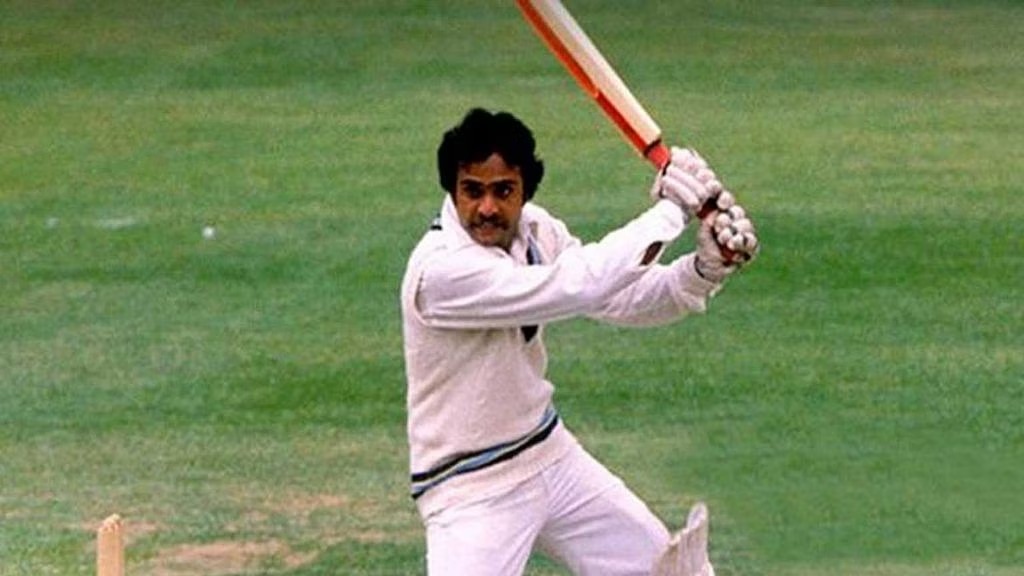India’s World Cup triumph in 1983 was in many ways a victory of the foot soldiers. There were two superstars in the squad. Sunil Gavaskar tallied 59 runs in six innings. Kapil Dev, of course, led from the front with bat and ball, even though the unbeaten 175 versus Zimbabwe and a fifer against Australia in a lost match boosted his numbers substantially.
It was the consistency of the bits-and-pieces players that won India the big prize. Mohinder Amarnath chipped in with bat and ball. Roger Binny and Madan Lal took wickets, and contributed lower-order runs. Sandeep Patil and Yashpal Sharma were solid in the middle order. In eight matches, the Indians registered five half-centuries in addition to Kapil’s century. Patil and Yashpal accounted for four of those.
Limited talent, unlimited guts
Yashpal is the only member of the squad who is no more. He succumbed to a heart attack in July 2021 at the age of 67. He was a national selector for two terms. He was a batter of limited ability and seldom looked ‘classy’. But he overcame his shortcomings with courage. He was a fighter, no matter who the bowler was. He was not going to cower away. At a time when looking for quick singles and twos was not a priority for Indians, Yashpal was a brisk runner between the wickets. He may not have won many battles, but he never took a backward step.
These traits came to the fore for three weeks in England. Numbers first. Yashpal logged 240 runs in eight innings with two fifties. This was second only to Kapil’s aggregate of 303. Yashpal was a floater in the middle order and at different stages of the tournament, played at No. 4, 5 and 6. To be consistent in a World Cup despite not having a fixed position must have taken some doing. The flexibility the occasional wicketkeeper provided aided the team’s cause. We saw how India struggled with an unsettled middle order in 2019, in another World Cup in England.
Telling contributions
Now, let’s not forget the numbers and, simultaneously, see what lies beneath. In 42 ODIs, Yashpal made 883 runs at 26.48, with four half-centuries. In a classic example of saving one’s best for the biggest stage, Yashpal hit a career-best of 89 in India’s opening match against West Indies in Manchester. He was batting at No 5. Against Michael Holding, Andy Roberts, Malcolm Marshall and Joel Garner, the next best was Patil’s 36. India made 262 and started with a stunning win.
Yashpal, who represented Punjab, Haryana and Railways in domestic cricket before settling down in Delhi after retirement, was quiet for the next few games, making 18 not out, three, nine and nine. He was back among the runs when India needed him. It was their last league fixture, a must-win one against Australia in Chelmsford. A win was imperative for Australia as well.
Against an attack comprising Geoff Lawson, Rodney Hogg, Ken MacLeay (who took 6-39 against India in the first leg) and an over-the-hill Jeff Thomson, almost all the Indians got starts but failed to carry on. Coming in at No. 4, Yashpal top-scored with a 40-ball 40. That there was just one four in his innings shows how well he ran between the wickets. The total of 247 was built around his knock, and Binny, along with Madan Lal, then mowed down Australia for just 129.
Yashpal was at it again in the semi-final against England in Manchester. This time, the role was different. He was at No. 4 again and India needed 214 to win. It was not a steep task and Yashpal anchored the chase with a 115-ball 61, the highest individual score of the match. His six off Bob Willis was audacious. Yashpal moved sideways towards the off stump, picked the ball up from the stumps and dumped it into the crowd behind deep square-leg.
Team man to the core
Although he failed with the bat in the final, he had done his job by then. Thrice, he was the top-scorer and India won on each occasion. And as part of the middle order, Yashpal was always under pressure because the opening pair never clicked. He was not a great fielder, but one of the energetic ones among that Indian lot. His quick movements and constant chirping lifted the mood when the chips were down. Yashpal, in essence, was a team man. Not the most talented, but the grittiest of hard workers. India won because there were more like him in that side.
As India celebrates 40 years of that miraculous achievement, it’s time to remember the contribution of this departed warrior. But for Yashpal, India’s totals in certain crunch games would have been below-par. This foot soldier brought out his courageous best when the situation demanded, even if he was made to bat outside his comfort zone at times. An unsung hero of Indian cricket’s finest hour.
- Also Read: The significance of 1983




